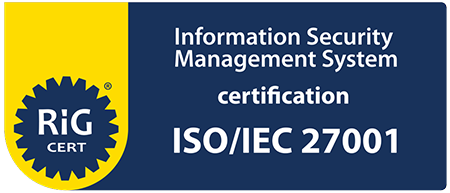Services and solutions
Resources
About the company

The latest news in HR development, leadership and digital tools - right in your inbox!
Drop us an e-mail: info@ls-s.com
Key areas of application of our expertise

Is it possible to improve the organizational culture and perception of the set values with surveys, pulse checks and other feedback tools?
Sometimes even the mention of "feedback" causes skepticism among employees, and their participation in surveys and other forms of feedback is seen as an annoying and unnecessary obligation, which aims to meet the requirements of management or to show that the company meets certain requirements. trends in human resource management. This can be changed by selecting such feedback tools that show employees that completing surveys and participating in analyzes is important and their views are taken into account on issues important to the company.
What should these feedback tools be to improve organizational culture and contribute to the sustainability of corporate values? In the first place, they should not be seen as an 'assessment', whether of employee performance or management assessment. This inevitably introduces a sense of threat and becomes another "task" that must be rejected, a criterion that must be met, otherwise it is assumed that there will be consequences. How can this be avoided? By selecting feedback tools that analyze "global" topics about the company, such as its core values or level of trust, one can change the attitude towards the feedback process itself. When employees are motivated to give their opinion about the development of the company, it inevitably undermines the overall organizational culture. If trust in the teams is shaken, the reasons for this should be investigated and the levels of trust between the individual teams should be compared. It is difficult to expect employees to be willing to openly name where the problems on such issues come from. Providing a tool for anonymous and focused feedback improves the overall organizational culture because it shows a real desire to deal with problems, rather than the threat of pointing specific employees or teams.
Gathering feedback on unclear or distant issues, or vice versa - too direct questions about the work of a particular person or team, are reasons for dissatisfaction with the feedback processes. We should not forget the survey of employee satisfaction with different areas: communication, working conditions, training and development. The organizational culture and the quality of the feedback are inextricably linked. If the feeling in the employees is that they are asked for feedback only formally, or that it is used as a "spy" technique, then the organizational culture will be saturated with negative attitudes. Therefore, the tools used by leaders and HR professionals should be developed with both parties in mind - anonymity for respondents, attention to their problems and quality reports and analyzes.
Related products: